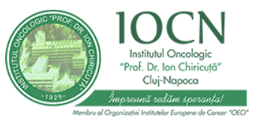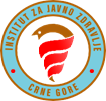WP7 – Implementation of colorectal cancer screening 
The colorectal cancer screening programme was launched on June 1st 2013 covering the population aged 60 to 64 years in 14 municipalities in Montenegro. A year later (on June 1st 2014), the programme became national with comprehensive coverage of the population registered with their GPs.
For all participants, colorectal cancer screening in Montenegro is free of charge. The Primary Health Care Centres are conducting the screening program. The roles of GPs is to invite the target population, provide information about the programme, select individuals for screening based on questionnaires, giving eligible patients instructions for conducting the test, referring those with a positive test for follow-up care in the Health Care System and discussing findings and possible treatments with them. The Institute of Public Health of Montenegro is in charge of the management, evaluation, monitoring and analysing of quality control by performance indicators according to the European guidelines for quality assurance.
Since the establishment of the colorectal cancer screening programme, notable progress has been achieved in terms of implementation. However, the past 3 years have been characterized by a decreasing level of coverage. According to the reports of Institute for Public Health in Montenegro, the colorectal cancer screening programme coverage rate in 2018 was 67%. Although response to the initial questionnaires by GPs has been high (overall 78% exceeding 80% in later years), the proportion of people sending in the kit is only 42% of the target population actually performs the test and returns it to their GP.
Improving the implementation of the colorectal cancer screening programme in Montenegro is very important. Currently optimal functioning of the programme is hampered by the following barriers. Firstly, there is insufficient colonoscopy capacity in the Northern part of the country, resulting in insufficient capacity for referrals and long travel distances for residents of that part of the country. Second, current IT systems are inadequate in that they do not provide linkage to a central population registry and does not allow for monitoring of key performance indicators by age and sex. Finally, the colorectal cancer screening programme lacks sufficient public promotion and education of health professionals. As a consequence, follow-up protocols are insufficiently followed and the yield of the programme is lower than it could be. Through development and distribution of communication and education materials, we will raise the awareness on the importance of the CRC screening programme. Before these three barriers can be adequately addressed it is important that national guidelines and protocols which have been in existence since 2011 are updated in line with European standards and best practices.
Similar to WP 5 and 6, data will be collected and the actions in the road map will be implemented. We hypothesize that increasing capacity for screening and follow-up, increasing public awareness and improving the IT system will be important topics to include in the possible scenarios and road maps. The outcomes of the implementation will be monitored and the model and road maps will be adjusted to aim for scaling up the interventions.











